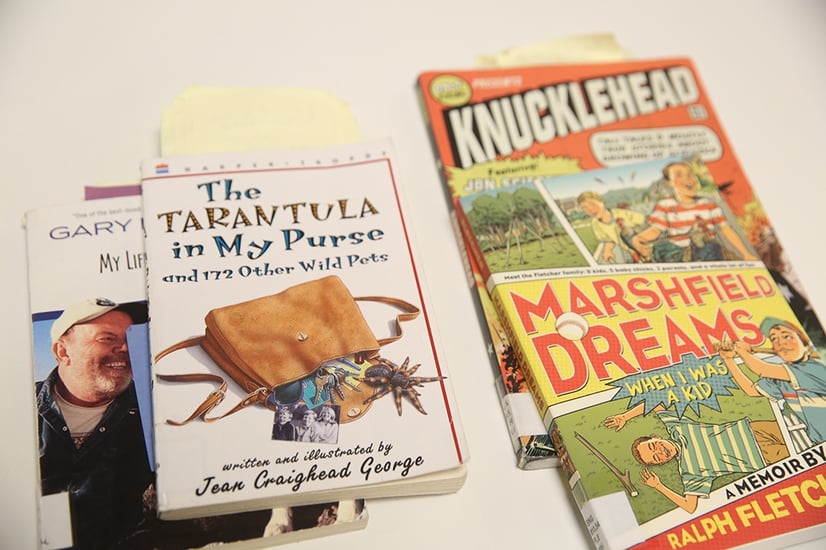We all go through life experiencing a multitude of events worth sharing because of the impact they've had on us. There are those that stretch us to do or be something we never thought we could, as well as those that remind us why we need certain people in our lives. We enjoy moments we want to hold onto forever and moments we would rather forget. As adults, we can clearly identify these moments, but how is the same thing possible for someone with only ten or eleven years of life experience?
How do they understand the difference between just a fun day and something with a deeper, more significant meaning? The difference between writing a straight personal narrative and a memoir comes down to understanding how a particular moment in time taught you a lesson about life or helped you grow as a person, then threading that idea throughout your piece. Even for someone with only a decade of life experience, it is possible. It's just a matter of digging. In order to get there, we focus our students' learning on three major areas.
Development, Style and Genre
The power of our fifth grade memoir writing unit's conceptual framework centers on the development of writing over time, from the "seed" of an idea, to a plan, to multiple drafts met with both peer and teacher conferences, before finally, completion. Students may start out with what seems like a simple idea, but throughout the unit, as they apply the skills and concepts they are learning, they begin to question and understand more deeply the real reasons behind why a particular moment in time sticks out in their mind as worth telling.
During the course of the unit, students engage with multiple inquiry based mini-lessons, where they consider stylistic choices that authors make when they write, each one forcing them to dig deeper into their own story and their reasons for telling it. By deconstructing student samples from previous years, as well as teacher and published models, students are able to build their own understanding of important stylistic elements such as small moments, purpose, leads, realistic dialogue, sensory detail and characters' thoughts and feelings. Applying these new ideas to their own drafts allows them time to practice while developing their own voice, and seeing the change that each new lesson brings.
With each new revision, students consider questions such as:
- "Does my lead engage the reader and leave them wanting more?"
- "Why am I telling this story?"
- "What details of the setting are important to include if I want the reader to see, hear and feel this scene?"
- "Did I make sure each character has his or her own voice and actions?"
- "Does my conclusion leave my readers satisfied?"
With each of these questions, students are forced to pause and consider more deeply the real reason for telling their story.
Growing as a writer is no easy task for anyone, let alone a fifth grader. The iterative process of this unit's framework, and its focus on development and revision, are its power.
All the while, alongside their writing, students read mentor texts to examine traits of the memoir genre in order to learn from published authors. As they read and engage in book groups, students identify the style points they are learning about in class in the texts they choose to read. By noticing and discussing the way published authors use a variety of lead sentences to engage readers, develop characters through dialogue and thoughts and feelings, or explain the significance of each chapter or "memory" the author has chosen to include, students begin to see patterns they can mimic in their own work.

Growing as a writer is no easy task for anyone, let alone a fifth grader. The iterative process of this unit's framework, and its focus on development and revision, are its power. What starts as a personal narrative about a whale watching trip in Maine may end up just that, but with enough prodding, patience, and revision, along with our magic question of "so what?", it usually ends up as a lot more.
In the words of fifth grader Julianna, "I grinned, and was happy that I could find a positive thing to say out of all of this. I peered back up at the skyline and I remarked that the stain of the horizon had just become radiant once again. I sat up and thought, maybe looking on the bright side could actually turn things bright!"


